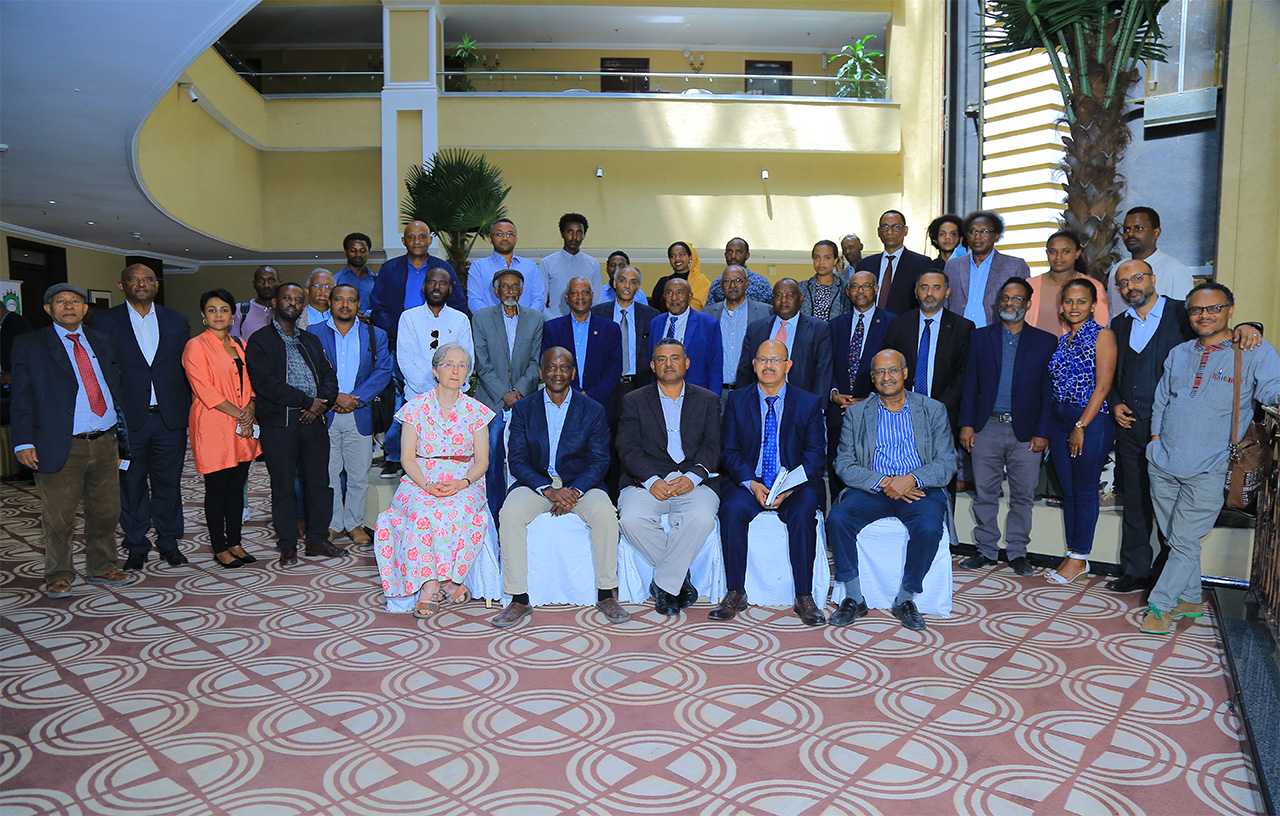FSS Holds Consultative Workshop on “Scenario Building and Public Interest in Ethiopia”
Forum for Social Studies (FSS), along with its partner organization on the project, Society for International Development (SID), conducted a full-day consultative workshop – the first of its kind – on “Scenario Building and Public Interest in Ethiopia” on Tuesday 10th May, 2022 at Capital Hotel, Addis Ababa.
The objective of the workshop, which was attended by 46 participants, was to bring together various informed actors – policymakers, academics, development practitioners, civil society leaders, representatives of youth and women organizations, and those from the private sector – to deliberate on public policy issues of national concern; namely, political governance and international relations, economic issues, and history and cultural matters.
The workshop began with a welcoming speech by Dr. Yeraswork Admassie, Executive Director of FSS, who prefaced opening remarks from Mr. Arthur Muliro, Deputy Managing Director at SID. After a short address from SID Consultant Dr. Barbara Heinzen on, ‘General Observations on Scenario Building’, presentations of the background study papers on which the dialogue would be based ensued. The study papers were prepared by three high-level researchers, each of whom proceeded to present their respective segments of the study. Professor Bahru Zewde, the study team leader and moderator of the workshop, introduced the purpose of the workshop and proceeded to present his section of the study that looked at historical and cultural issues such as the resilience of the state, identity, and socio-cultural values. Following him, Dr. Asnake Kefale, who succeeded the late Professor Kassahun Berhanu and completed the work on the project, made a presentation on the country’s political governance and foreign policy affairs. Dr. Berhanu Denu who covered the country’s economic policy and management as well as factors of economic growth, macroeconomic instability, and the potential for technological development and natural resource extraction then concluded the presentation session.
Following a short tea/coffee break, participants split into three breakout groups and went into their respective dedicated rooms to deliberate on the three themes of governance, economy, and historical and cultural issues. The cultural history group considered factors of social stress and resilience, and what may become of the future with regards to questions of national identity, ethno-nationalism, and inter-religious tension. Participants in the governance cluster addressed questions of global pressures and alignments, institutional dysfunction, potential trajectories of ongoing conflicts, as well as deliberating on democratic freedom, authoritarian traditions, and the future context in which civil society will function. Those in the economics group discussed the trajectory of Ethiopia’s economic development, its technological opportunities, and whether recent policies of privatization may extend to land ownership and publicly owned mega projects.
After breaking for lunch, participants returned to their respective groups to wrap up their discussions before reconvening for a closing plenary session. Here, the three rapporteurs presented to all the participants the gist of the discussion of their respective breakout groups. Following the presentations, the moderator, Professor Bahru, opened the floor for comments, questions & answers, leading to a lively discussion. He then closed the event by thanking the participants for their candid involvement, SID and its management for their financial and professional support, as well as the FSS staff who tirelessly organized the event.

